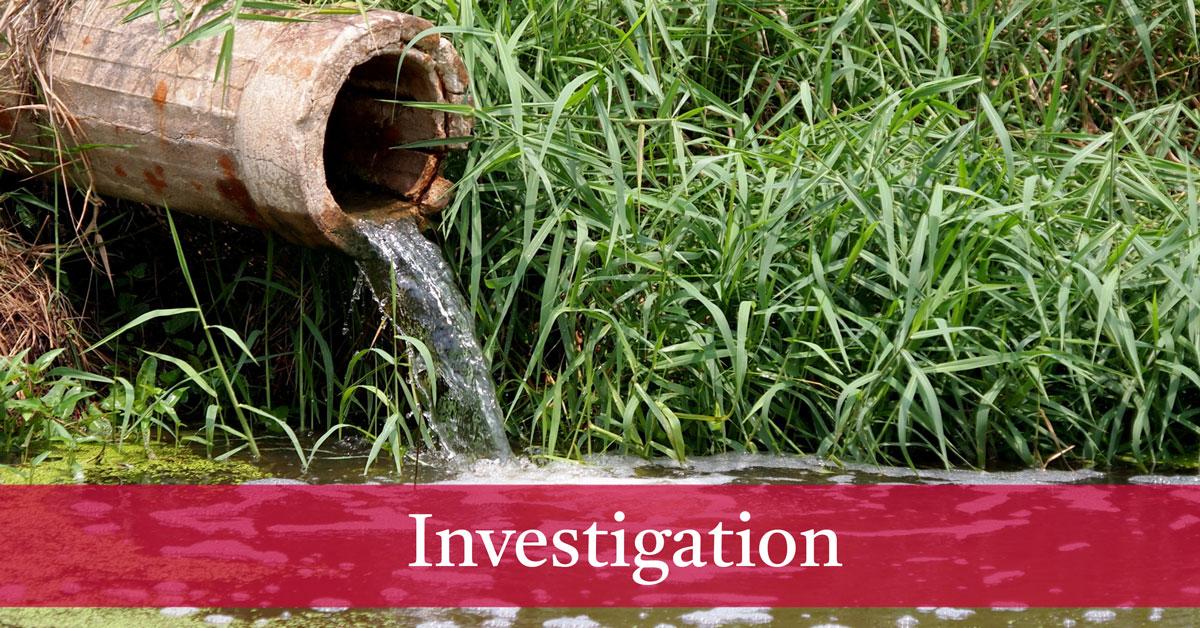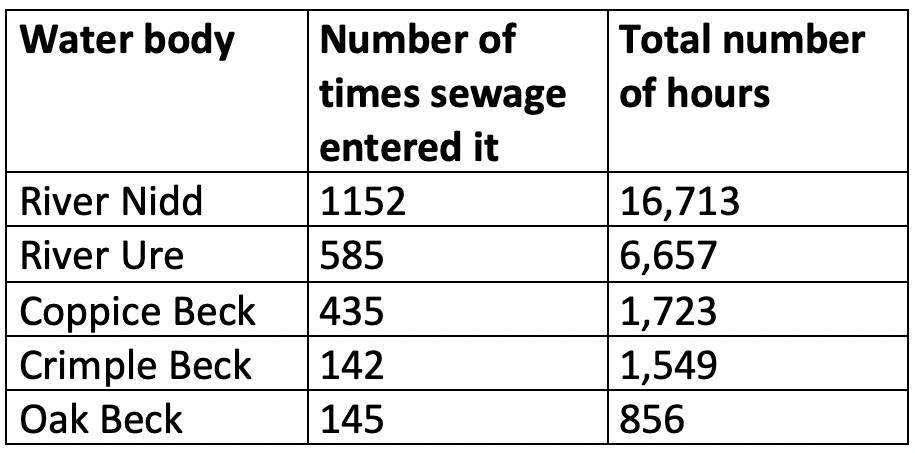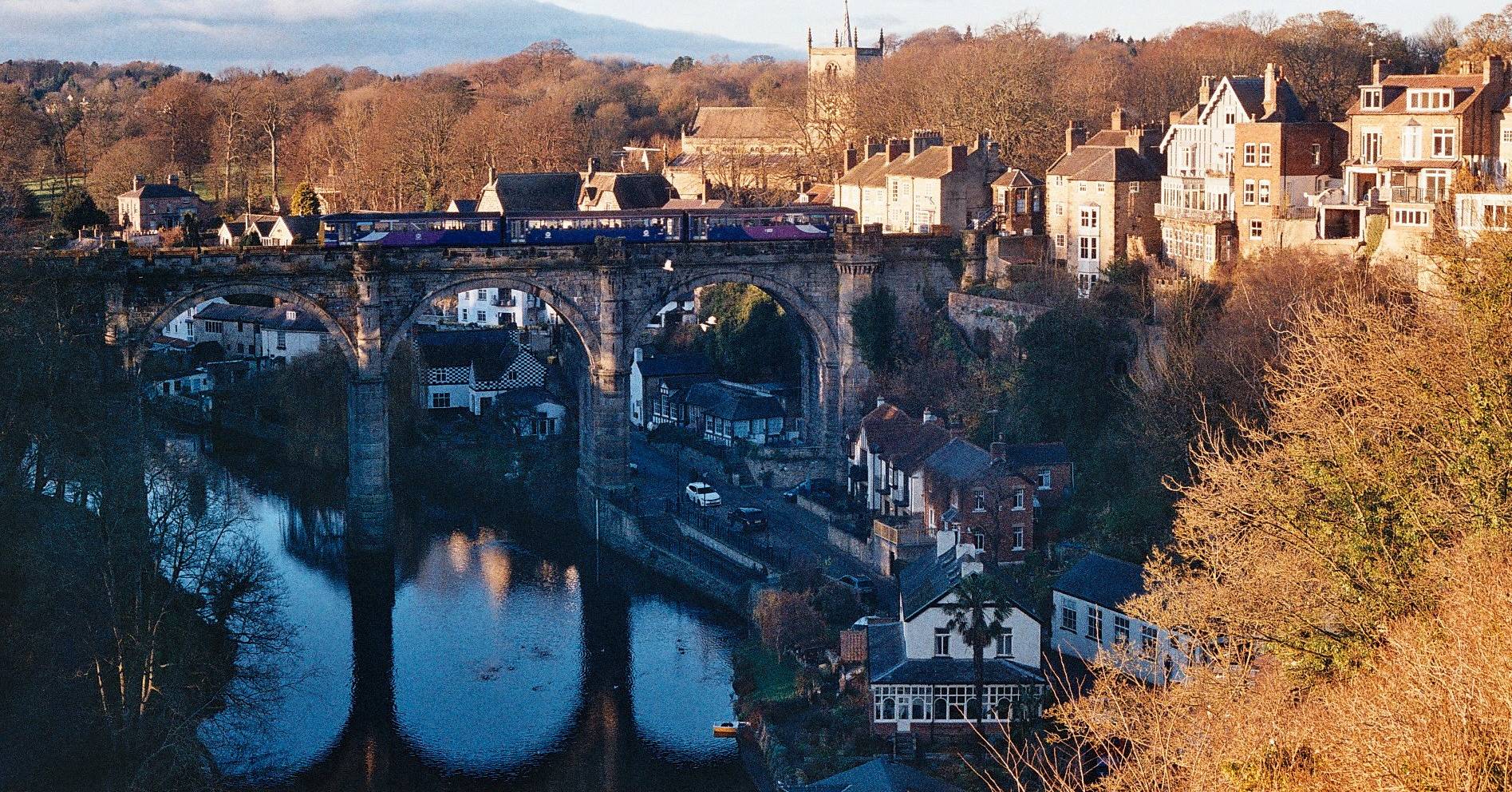Subscribe to trusted local news
If you are accessing this story via Facebook but you are a subscriber then you will be unable to access the story. Facebook wants you to stay and read in the app and your login details are not shared with Facebook. If you experience problems with accessing the news but have subscribed, please contact subscriptions@thestrayferret.co.uk. In a time of both misinformation and too much information, quality journalism is more crucial than ever. By subscribing, you can help us get the story right.
- Subscription costs less than £1 a week with an annual plan.
Already a subscriber? Log in here.
08
Apr 2021
Raw sewage released into Harrogate district rivers for 36,000 hours last year

Yorkshire Water released raw and untreated sewage into Harrogate district rivers and becks on 3,800 different occasions last year for a total of 36,000 hours.
The figures, which were shared with the Stray Ferret by Yorkshire Water, show the scale of river pollution that the Environment Agency said is causing harm to the environment.
Water companies are legally allowed to release sewage through overflow pipes when the sewage system becomes too full which can happen during increased rainfall.
Some of the data is below:
'Wouldn't even let dogs in'
Yorkshire Water said the sewage has been diluted by rainwater and it is investigating the environmental impact of the storm overflows. But people who use and enjoy the rivers said they were concerned about the pollution. Harrogate district rivers such as the Nidd, which runs through Pateley Bridge and Knaresborough, offer some of our most scenic places to visit.
Kath Martin, who runs the Facebook page Keep Nidd Gorge Gorgeous, said the Nidd "can get very nasty" due to the pollution.
She said:
Kath was part of the campaign that fought to protect Nidd Gorge from a major new road and said "it's an area we have to protect."
She added:
Concern
Whilst the raw sewage that lurks in Nidd or the Ure makes it unappealing for anyone wanting to wild swim, its impact on local wildlife could also be severe.
Environment Agency data from last year revealed that every section of the River Nidd that runs through the Harrogate district failed annual water pollution tests due to the river being contaminated.

David Clayden is secretary of the Harrogate Flyfishers' Club. Members fish on the section of the Nidd that runs through Darley, close to where Yorkshire Water released sewage over 2,800 hours last year.
He said he was concerned about the figures and added the club will soon testing the water to try and gauge its impact on the fish.
He said:
Harm to the environment
The Environment Agency told the Stray Ferret that nationally, the number of sewage spills has increased by 27% since 2019.
It said this was, in part, due to increased monitoring of water companies.
Sir James Bevan, chief executive of the Environment Agency, said:
A Yorkshire Water spokesperson said:
0